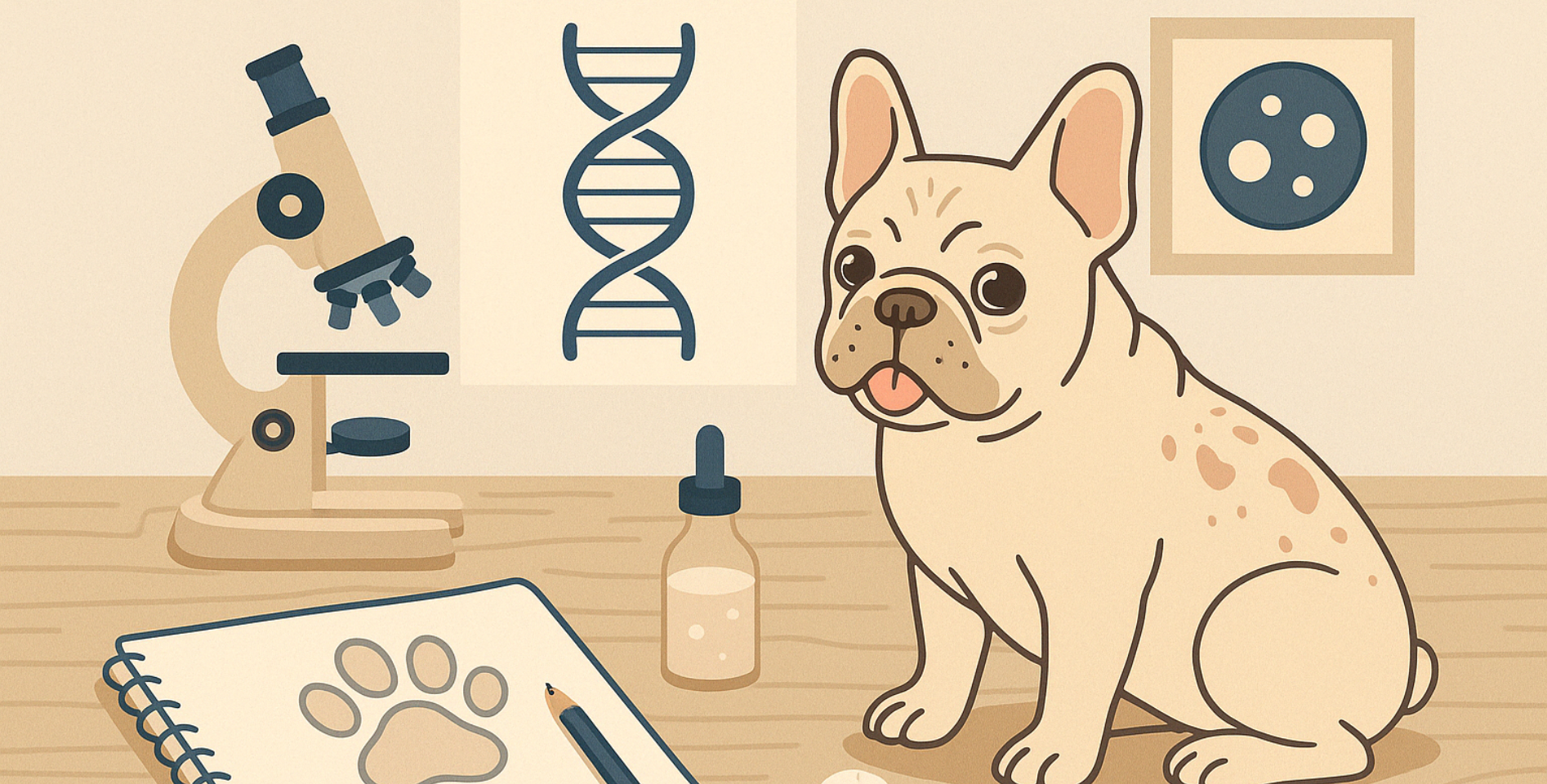
The Science Behind Dog Skin Sensitivities
If your dog constantly scratches, licks, or seems uncomfortable in their clothing, it might not be just a picky pup. Many dogs, especially breeds like French Bulldogs, are prone to skin sensitivities that can be triggered by fabrics, environmental factors, and even laundry detergents. Understanding the science behind dog skin health can help you make better choices for your pet’s comfort and well-being — starting with the clothes they wear.
Why Some Dogs Have Sensitive Skin
Just like humans, dogs have varying skin types, and some breeds are more prone to sensitivities than others. French Bulldogs, in particular, have thin, delicate skin and short coats, which makes them more exposed to contact irritants and allergens.
Frenchies are especially prone to skin issues such as atopic dermatitis, a chronic condition caused by environmental allergens like pollen, mold, and dust mites. But it's not just allergens — contact irritation from synthetic fabrics, harsh chemicals, or rough textures can also trigger symptoms.
📌 Source – Characterization of Sensitive Skin: Genetic and Environmental Contributions
How Fabric Choices Affect Skin Health
What your dog wears can play a huge role in either soothing or aggravating their skin. Synthetic fabrics like polyester and nylon are common in dog clothes, but they’re not breathable and often treated with chemical dyes, plasticizers, and flame retardants that can irritate sensitive skin.
Many studies have found that contact with certain synthetic textiles can increase skin barrier disruption and inflammatory reactions in mammals.
📌 Source – Skin Health and the Effects of Synthetic Textiles on Barrier Function (NIH / PMC)
The Role of the Skin Barrier
Your dog’s skin acts as a protective barrier, and when it’s compromised — whether by allergies, dryness, or irritants — it becomes more vulnerable to infections, rashes, and discomfort. Synthetic materials can trap heat and moisture, creating the perfect environment for bacterial and fungal growth, especially in the folds of breeds like Frenchies.
Using natural, breathable fabrics like organic cotton allows air to flow, helps regulate temperature, and reduces the risk of irritation.
Other Triggers to Watch Out For
Beyond clothing, here are a few other things that can contribute to skin issues in dogs:
-
Detergents and fabric softeners used to wash dog clothes
-
Environmental allergens like pollen or dust on clothing after walks
-
Friction from tight-fitting or poorly designed garments
-
Excessive moisture trapped under synthetic clothing
How to Keep Your Dog Comfortable
-
Choose organic, chemical-free fabrics like GOTS-certified organic cotton
-
Wash clothes with fragrance-free, hypoallergenic detergents
-
Avoid tight elastic or heavy designs that create heat and pressure
-
Monitor for redness, itchiness, or behavior changes after wearing new clothes
-
Consult a vet if symptoms persist
Frangelika’s Commitment to Sensitive Skin
At Frangelika, we design every piece of clothing with sensitive dogs in mind. Our organic cotton garments are free from synthetic fibers, harsh dyes, and irritating finishes. They’re breathable, soft, and carefully cut for breeds like Frenchies who need that extra level of comfort.
Because fashion should feel as good as it looks, especially for your pup.


